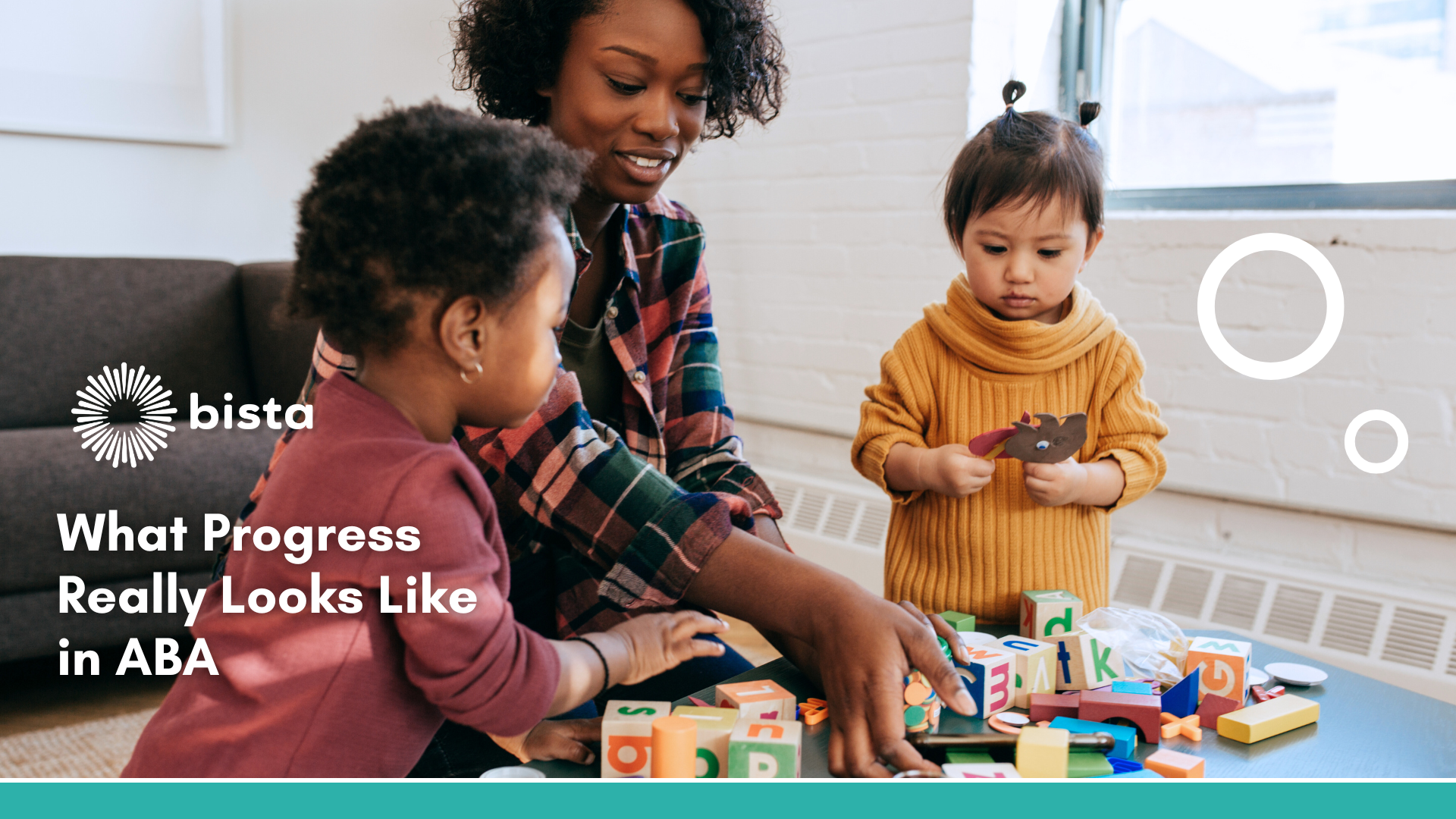If you’re a parent of a child with a developmental delay, you’ve probably heard the term Applied Behavior Analysis (ABA). While it might sound technical, at its heart, ABA is a positive, evidence-based approach to helping children learn and grow. Think of it as a toolkit for understanding why your child does what they do, and how you can help them develop new, helpful skills. The goal of ABA is to empower your child to reach their full potential, while helping them feel confident and successful along the way.
Understanding the ABCs of ABA
The foundation of ABA is a simple idea known as the “ABC” model:
- Antecedent: What happens right before a behavior.
- Behavior: Your child’s action or response.
- Consequence: What happens immediately after the behavior.
An ABA therapist uses this framework to understand why a certain behavior is happening. Is a child asking for a toy because they want to play? Are they having a hard time transitioning from one activity to the next? By understanding the “why,” the therapist can create a personalized plan to teach new skills. The focus is always on positive reinforcement, meaning your child is praised or rewarded for new skills and positive behaviors, making them more likely to happen again in the future.
A Peek into an ABA Session
A typical ABA session may look a lot like playtime! Rather than just sitting at a table, sessions are designed to be fun and engaging. Your child’s therapist will meet them where they are and use their unique interests to build skills.
- Play and Games: Sessions often involve puzzles, matching games, singing songs, and role-playing. If your child loves trains, the therapist might use trains to practice taking turns or using new words.
- Natural Environment Training (NET): This means learning happens in the real world. A therapist might work with your child to help them learn skills associated with daily tasks like getting dressed or brushing their teeth.
- Individualized Learning: Every child’s plan is different. A therapist will break down complex skills, like having a conversation, into smaller, manageable steps. This ensures your child feels a sense of accomplishment with each new step they take.

The Benefits of ABA
ABA therapy can help your child develop a wide range of skills that will benefit them throughout their life. Many parents report seeing their children become more independent and confident.
- Communication: ABA can help children express their wants and needs, whether through words, pictures, or gestures.
- Social Skills: It can help your child learn how to share, take turns, play with others, and respond to social cues.
- Daily Living Skills: ABA can assist with essential self-care tasks, such as toileting, eating, and getting dressed.
- Increased Independence: As children gain new skills, they are able to participate more fully in their family, school, and community.

Getting Started with ABA & What to Expect
Starting ABA therapy can feel overwhelming, but knowing what to expect can make the process smoother.
Who is on the team?
Your child’s ABA program is designed and overseen by a Board Certified Behavior Analyst (BCBA), who creates the individualized treatment plan. A Registered Behavior Technician (RBT), works directly with your child and implements the plan under the BCBA’s supervision.
What about the time commitment?
Research has shown that beginning ABA therapy as early as possible, especially before age four, can lead to significant gains in development and may reduce the need for special services later in life. The amount of therapy and parent involvement will vary depending on your child’s specific needs. Research supports that more hours lead to better results.
How do I find the right fit?
While ABA is a science-based approach, it’s not a one-size-fits-all solution. It’s crucial to find a provider who practices safe and ethical ABA. This means the therapy is individualized to your child’s needs and interests, focuses on positive reinforcement, and respects neurodiversity. The therapy should be balanced with time for your child to simply be a child and enjoy their life. You should be encouraged to participate and advocate for your child’s needs. If you have any concerns, don’t hesitate to ask questions or seek other professional opinions.
What’s Next for Parents
Navigating the world of developmental delays can be a complex and emotional journey, and finding the right support for your child is a top priority. Ultimately, the goal of ABA is to help your child become more independent and to improve their quality of life. The methods are flexible and are customized to meet the unique needs, interests, and family situation of each individual.
If you’re considering ABA therapy for your child, it’s important to find a team that you trust and that takes a holistic approach to care. At Bista, our clinical team works with families to develop individualized therapeutic plans that may include a combination of ABA, speech-language, and occupational therapies.
We encourage you to explore your options and, when you’re ready, reach out to the Bista clinical team for advice more specific to your child’s needs.
Every child is unique, and these tips may look different depending on your child’s preferences and needs. This content is for general informational purposes and is not intended as specific medical or therapeutic advice.



